Xi’s third term: Here’s why the Chinese leader's reelection is good news for Russia, but ominous for the US and Taiwan
The precedent-busting extra five years could see years of tensions finally come to a head
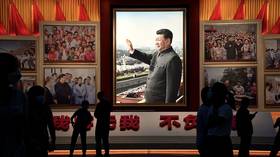
By Maxim Hvatkov, a Russian journalist focusing on international security, China's politics and soft-power tools.
The 20th National Congress of the Communist Party (CPC) of China is over and the first Plenary Session of its Central Committee in its new composition has set to work and reelected General Secretary Xi Jinping for a third term. The Chinese leader has thus gone against a well-established tradition, of almost 30 years, where power is passed to the new generation of leaders at the end of a second term.
RT looks at how things will now shape up for China’s relations with the world’s top powers.
Everything revolves around Xi
Next March is unlikely to herald a new period for China, as international observers may have expected. Xi Jinping will remain at the helm of the Chinese Communist Party for a third consecutive term, having provided all the necessary legal prerequisites for that to happen back in 2018.
The country’s main political body, the Politburo Standing Committee (PSC) of the CPC Central Committee, is made up of Xi’s reliable and absolutely loyal associates – people whom he has known for years. Previously, China experts used to split the country’s elite into two rival factions – the Communist Youth League and the Shanghai gang. However, this approach is no longer applicable.
The Beijing news agency Xinhua reports that Xi has personally overseen the selection of candidates to run for the CPC Central Committee and defined the selection criteria:
General Secretary Xi Jinping personally planned the set-up of a candidate selection commission, supervised and checked its work, providing the right direction and making sure candidates are properly trained for the 20th CPC Congress.
The second most important person in the new party hierarchy is Li Qiang, the current party secretary of Shanghai. He is the most likely candidate for the post of premier of China’s State Council in March 2023, although he’s never held a top government position before – another fact at odds with the established tradition. Given all of this, experts are certain that any attempts to speculate on the identity of Xi Jinping’s eventual successor are futile. And Xi is definitely poised to run the world’s most populous country for many more years to come.
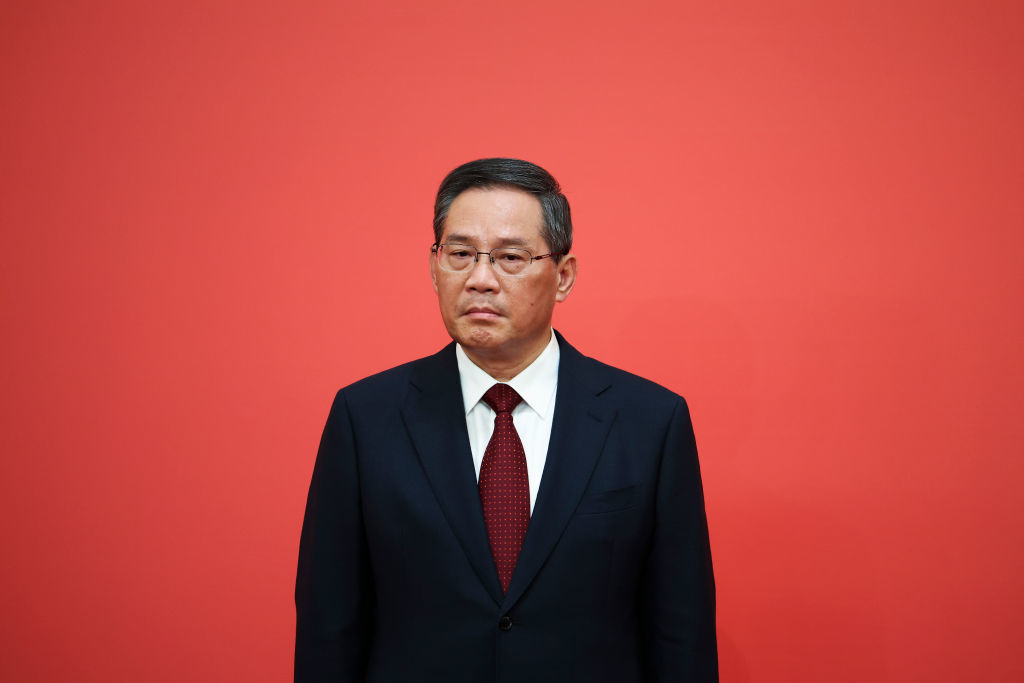
The rapid rise of Li Qiang to the second highest position in the party demonstrates that Xi values loyalty and trustworthiness. Born in the Zhejiang Province, he majored in farm mechanization at a local agriculture institute and later studied economics at the Central Party School and Hong Kong Polytechnic University. At the age of 24, he joined the CPC and focused on the party’s youth programs.
Between 2004 and 2007, he worked in Zhejiang, with Xi his direct superior. After Xi was elected secretary general in 2012, Li was first made the governor of Zhejiang, and then promoted to the party chief of neighboring Jiangsu Province. Five years later, he was appointed party secretary of Shanghai, and for the first time entered the PSC of the Chinese Communist Party.
In the spring of this year, Shanghai hit the headlines in media outlets across the globe due to a Covid-19 outbreak and the harsh response of the local authorities. The city was closed for two months, which resulted in significant economic consequences and even a temporary outflow of the city’s population. However, it seems that Xi appreciated Li’s actions, which complied with China’s general zero-Covid policy.
Apart from Xi and Li, the newly elected PSC of the Communist Party includes Zhao Leji, secretary of the CPC Central Committee for discipline inspection; Wang Huning, head of the CPC Central Committee Secretariat and the main ideologue of modern China; Cai Qi, the party secretary of Beijing; Ding Xuexiang, head of the Secretariat of the CPC Central Committee; and Li Xi, party secretary of Guangdong Province.
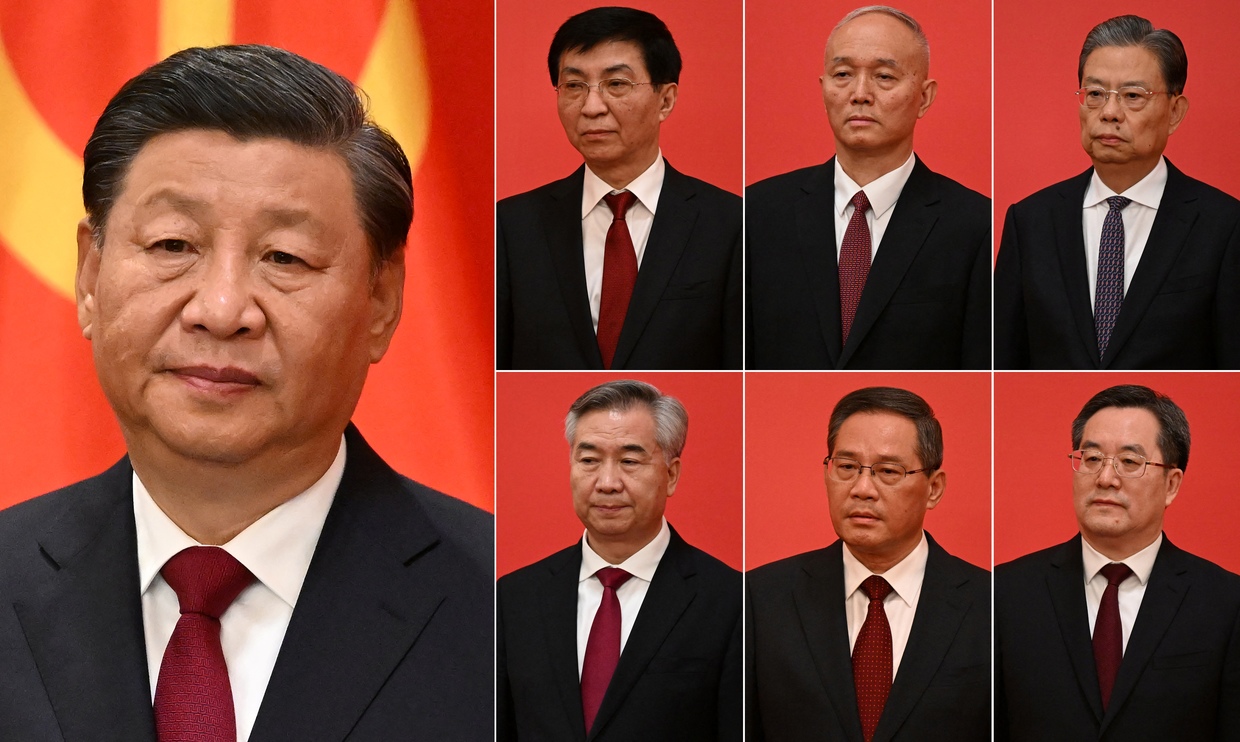
The above-mentioned officials will receive important government positions in March 2023, which, according to the established tradition, will be done in the order of priority outlined at the CPC Plenary Session. Xi will retain the post of Chinese president, while Li is likely to be appointed premier of the State Council. Zhao Leji will be the head of the Standing Committee of the National People’s Congress, China’s parliament, while Wang Huning is the most likely candidate to head the Chinese People’s Political Consultative Conference, an advisory body.
Friends with Russia, enemies with America
How will Xi continue to build relations with the US and Russia now that he has secured the unwavering support of his party for the next five years?
Yuri Tavrovsky, head of the Expert Council of the Russian-Chinese Committee for Friendship, Peace and Development, says that it is important for Russia to see the CPC’s stability and commitment to its long-term strategy:
“Xi Jinping basically has a ruling mandate, a blank check. Moreover, his staying in office after 2027 is a definite possibility, because when discussing plans, the Congress focused on 2032 rather than 2027. This is good for Russia, because Xi supports the idea of strategic partnership with Russia and its further expansion. The cooperation existed before him, but it was Xi Jinping who branded it the ‘strategic partnership of the new era’. Under him, ties between political leaders, the military and economic systems grew stronger. The outcome of the 20th Congress was definitely good news for Russia.”
Alexander Lomanov, deputy head of the Primakov Institute of World Economy and International Relations, agrees. He says that “Xi staying in power allows Russia to have a long-term plan for developing its partnership with China and that the countries will stay on the same path.”
The confrontational China-US relations, however, will continue. Many experts think that Washington will set the agenda.
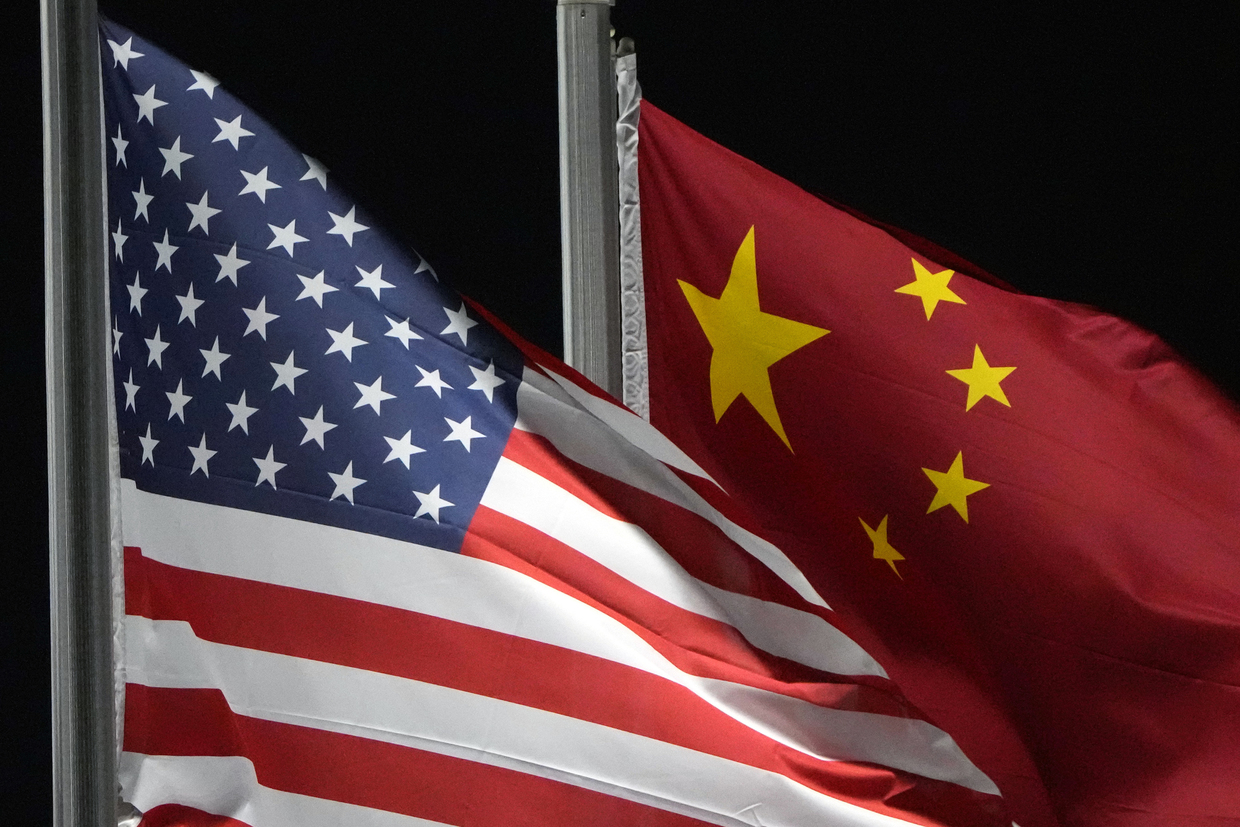
In an interview with RT, Maxim Bratersky, an international relations professor at HSE University, shared that he doesn’t think that Xi Jinping ever tried to start a new cold war.
“It is true that under Xi Jinping China became more confrontational than it was before him. But we can’t say that he provoked all this nonsense that some call a new cold war. The other side did it. And I think that even now the ball is in the American court – we don’t know what’s going to happen after the congressional elections in November and the 2024 presidential campaign. I don’t expect any significant shifts in China-US relations in the near future. Yes, the Americans are not happy about things, but why would they be happy? But I don’t see any bombshells in China-US relations right now,” he says.
Maxim Bratersky thinks that China is not seeking global leadership but just wants to develop and become prosperous without external interference. Xi expressed some of those ideas when introducing the new leaders and offered assurances that China would not strive for hegemony or expand its borders.
“The Americans are the ones fighting for global dominance. China doesn’t have such plans, it doesn’t want to rule the world, lacking both the experience and desire to do so,” Bratersky emphasized.
On the brink of war
Taiwan will be one of the thorniest issues for US-China relations in the years to come, as Beijing considers the reintegration of the island a matter of essential interest.
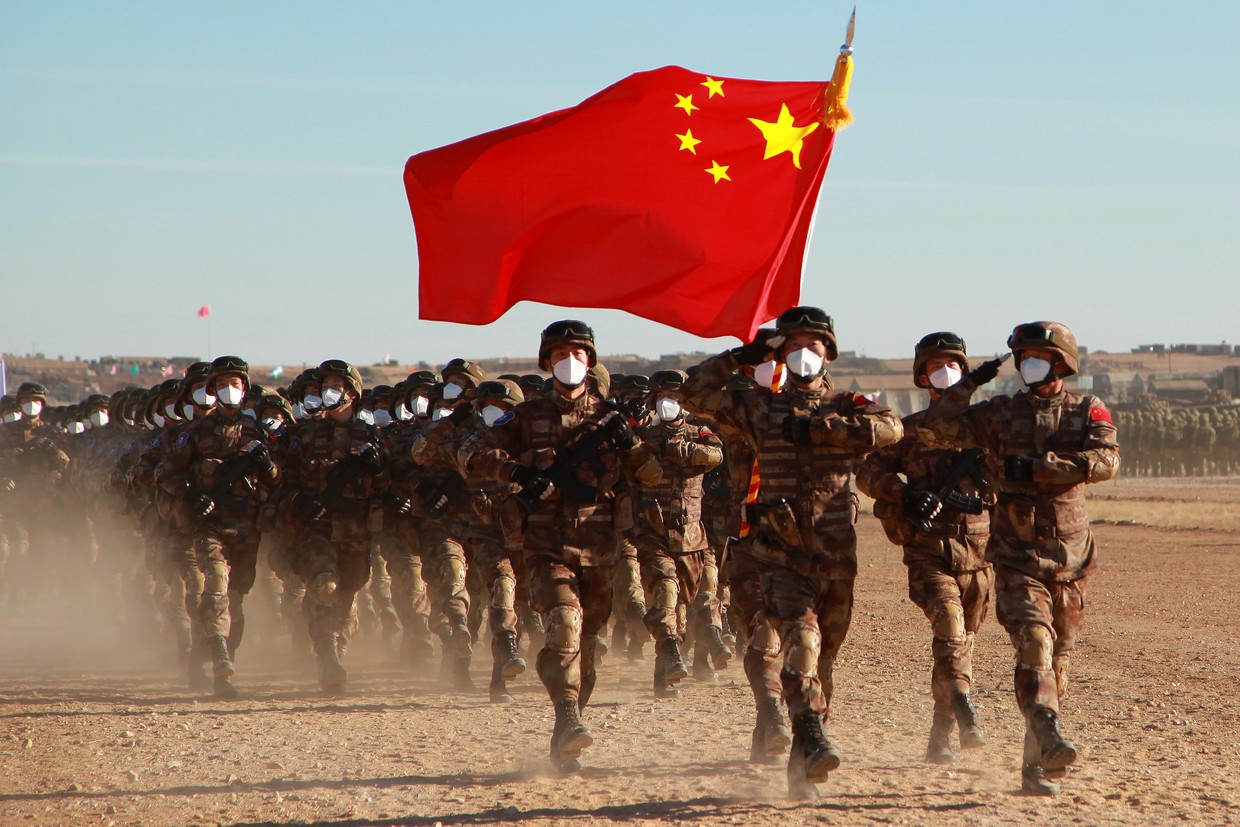
Addressing the 20th Communist Party Congress, Xi talked about a peaceful reunification, although a military scenario was not ruled out. On the last day of the Congress, delegates unanimously voted for enshrining “Xi Jinping Thought on Socialism with Chinese Characteristics for a New Era” in the Party Constitution, which now also includes provisions on its achievements and the need to seek a Chinese reunification while containing those who proclaim Taiwanese independence.
“We will continue to strive for peaceful reunification with the greatest sincerity and the utmost effort, but we will never promise to renounce the use of force, and we reserve the option of taking all measures necessary. This is directed solely at interference by outside forces and the few separatists seeking 'Taiwan independence' and their separatist activities,” Xi Jinping said.
Lomanov believes the Taiwan issue is putting pressure on the leadership of the PRC. To a certain degree, the strategy of avoiding decisive action plays into the hands of those who support Taiwan’s independence, including the current Taiwanese administration and the ruling Democratic Progressive Party (DPP). If Beijing is serious about bringing Taiwan back into its fold, it cannot afford to leave the situation as it is, he says.
Vasily Kashin, director of the Centre for Comprehensive European and International Studies (CCEIS) at the Higher School of Economics, says a military conflict over Taiwan is likely within the next three to four years.
“The Taiwanese election in 2024 will be an important milestone. If the Chinese realize that the DPP is winning again and nobody is interested in a dialogue with mainland China, the decision to launch a military operation will be made no later than 2025,” he predicts.
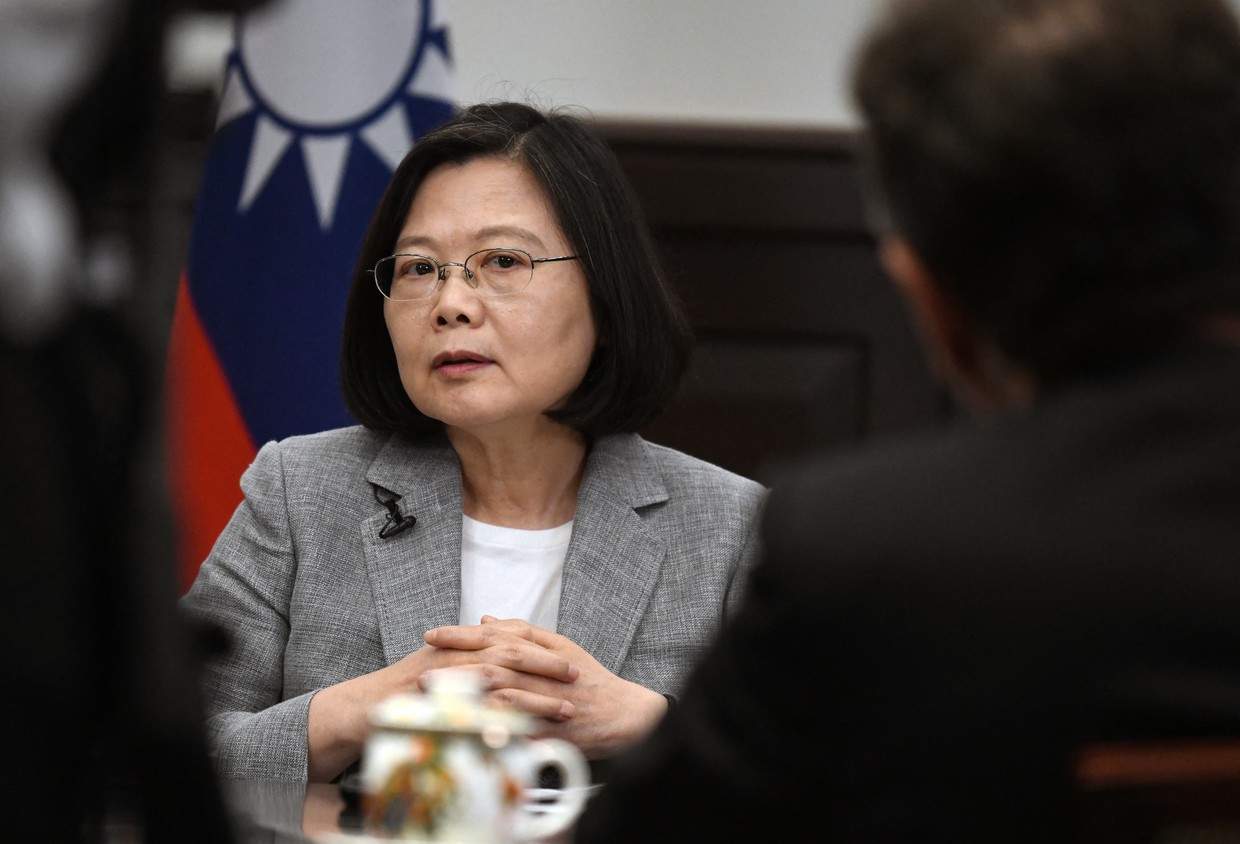
Should this happen, American involvement will be inevitable, although it is not yet clear if the US will really attempt to rescue Taiwan or simply intervene to save face.
“It would be a much more dangerous crisis on a much bigger scale than even what we’re seeing now in Ukraine,” Kashin says.
How will America respond?
Dmitry Suslov, deputy director of the CCEIS, believes the US has abandoned Henry Kissinger’s concept of trying to keep relations between Russia and China worse than these countries’ respective relations with the US.
“Instead, the US has been lately trying to portray the Russia-China relationship as a tandem and a source of global threat and evil. By doing this, Washington is rallying its allies and partners, or, in other words, is restoring, rebuilding, and strengthening the new collective West,” Suslov explains.
When the US severed relations with the Republic of China in 1979, it simultaneously signed the Taiwan Relations Act, which includes US pledges of support for Taipei. It does not, however, stipulate specific measures of military assistance if Beijing were to launch an offensive. This is left to be determined by the president of the US with the consent of Congress.
Experts agree that a military scenario in Taiwan would be very challenging and a no-win situation for the US: entering the conflict on Taiwan’s side would unleash World War III (which could turn nuclear), while losing it to China would spell the end of the US-led global order, which would unravel the system of US alliances. Which way would Washington go is anybody’s guess.
Tavrovsky believes that Xi and present-day China pose an existential threat to the US economically, militarily, and ideologically.
“China is demonstrating that global socialism, rather than being defeated, has been rejuvenated and, while it might not be the international mainstream, is becoming a powerful movement that can challenge liberal capitalism championed by America,” Tavrovsky outlines.
He believes Xi Jinping needs a time of peace to develop the country and reach the goals he has set, whereas Washington would like to leverage a new cold war with Beijing to slow it down. Various tools can be used to pursue this policy, from ramping up pressure over Taiwan to cutting chip supplies and other economic measures.
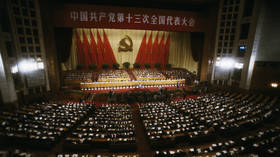
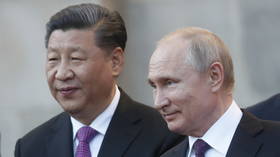



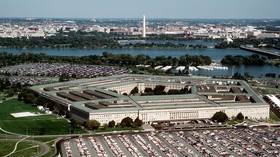

0 Comments:
Post a Comment
Subscribe to Post Comments [Atom]
<< Home